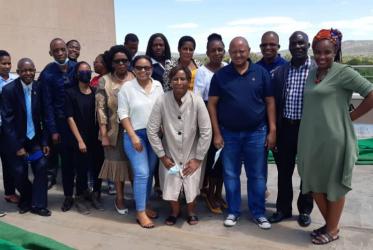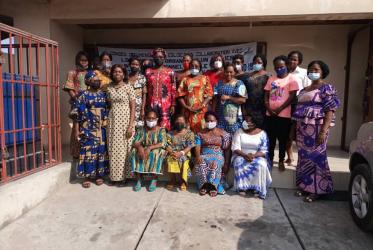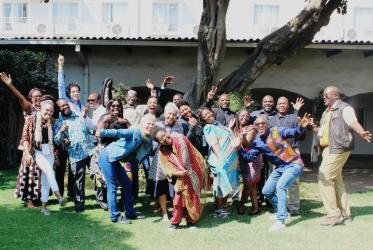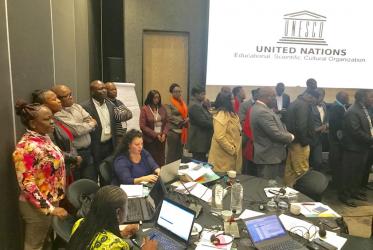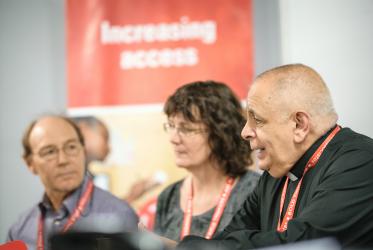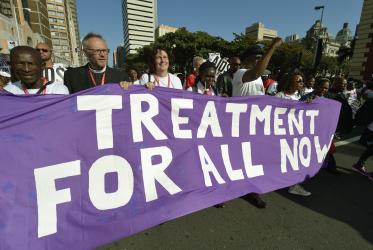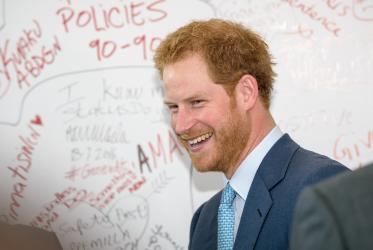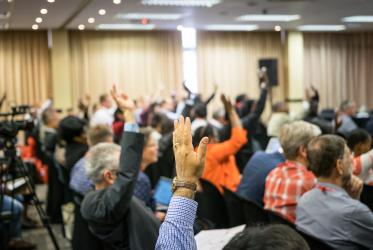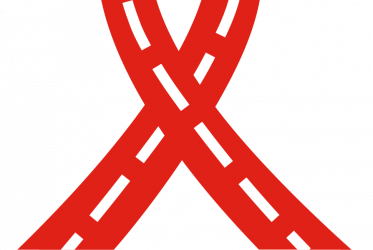Displaying 1 - 20 of 27
“Gathering in Grief” mourns Rev. Phumzile Mabizela
07 July 2021
WCC-EHAIA pioneer receives honorary doctorate
21 March 2018
Youth engagement fundamental to HIV response
18 April 2017
AIDS 2016: Coverage of faith response to HIV
22 July 2016
Star power shines light on AIDS epidemic
21 July 2016
Children are being let down over HIV care
17 July 2016
AIDS 2016: “Stigma kills more people than HIV”
17 July 2016
